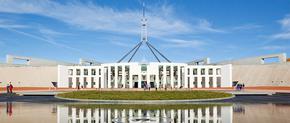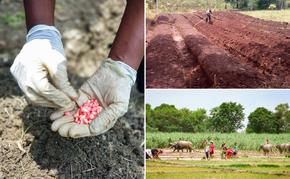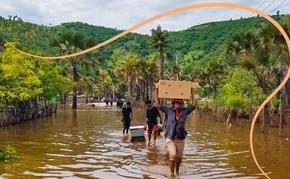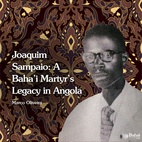In early 2020, questions concerning national identity, migration, and prejudice were propelled into the public consciousness in the Netherlands — as in many other societies throughout the world — prompted by nationwide demonstrations in the United States calling for racial justice.
Since that time, the Dutch Baha’i Office of External Affairs, as part of its ongoing efforts to contribute to a discourse on racial unity, has been holding discussion forums that explore how spiritual concepts such as the Baha’i principle of unity in diversity can foster greater social cohesion.
Sherene Devid of that Office explains that these conversations have taken on greater significance in recent years, stating: “Many people are asking what it means to be Dutch, especially now as the Netherlands is becoming home to a growing number of migrants from across the world.”
The Office of External Affairs is finding that in order to examine the issues at greater depth, conversations need to challenge common notions about identity.
“These discussions are bringing to light that people often talk about ‘integration,’ but in practice the expectation is ‘assimilation,’ says Ms. Devid.
“This assumption is inevitable if you think individuals have a singular identity, and that identity is synonymous with their nationality or culture,” she continues, “But if we adopt a different view of ourselves — one where humans are seen as spiritual beings — it becomes possible to understand how someone can be both a Dutch citizen and a citizen of the world.”
When people come to appreciate the spiritual principle of unity in diversity, explains Ms. Devid, they are able to greatly value the rich diversity presented in their society.
“It’s not only about our tiny country of the Netherlands,” says Ms. Devid, “we have to look at all of our relationships, with the whole world.”
What the conversations of the Office are highlighting is that when a broadened conception of identity is paired with acknowledgement of the principle of oneness, people are able to see that their own identity as a member of the human family takes precedence over other identities and associations.
“We learn to come to see that we are part of something bigger. We are able to overcome an ‘us or them’ thinking. This has deep implications for social structures, for governance and policymaking processes, and for how as a society we address prevalent issues, such as migration, the environment, and economic justice.
“Love for humanity is what will gradually melt away prejudices and strengthen relationships between individual citizens, communities, and institutions.”

















Comments
Sign in or create an account
Continue with Googleor